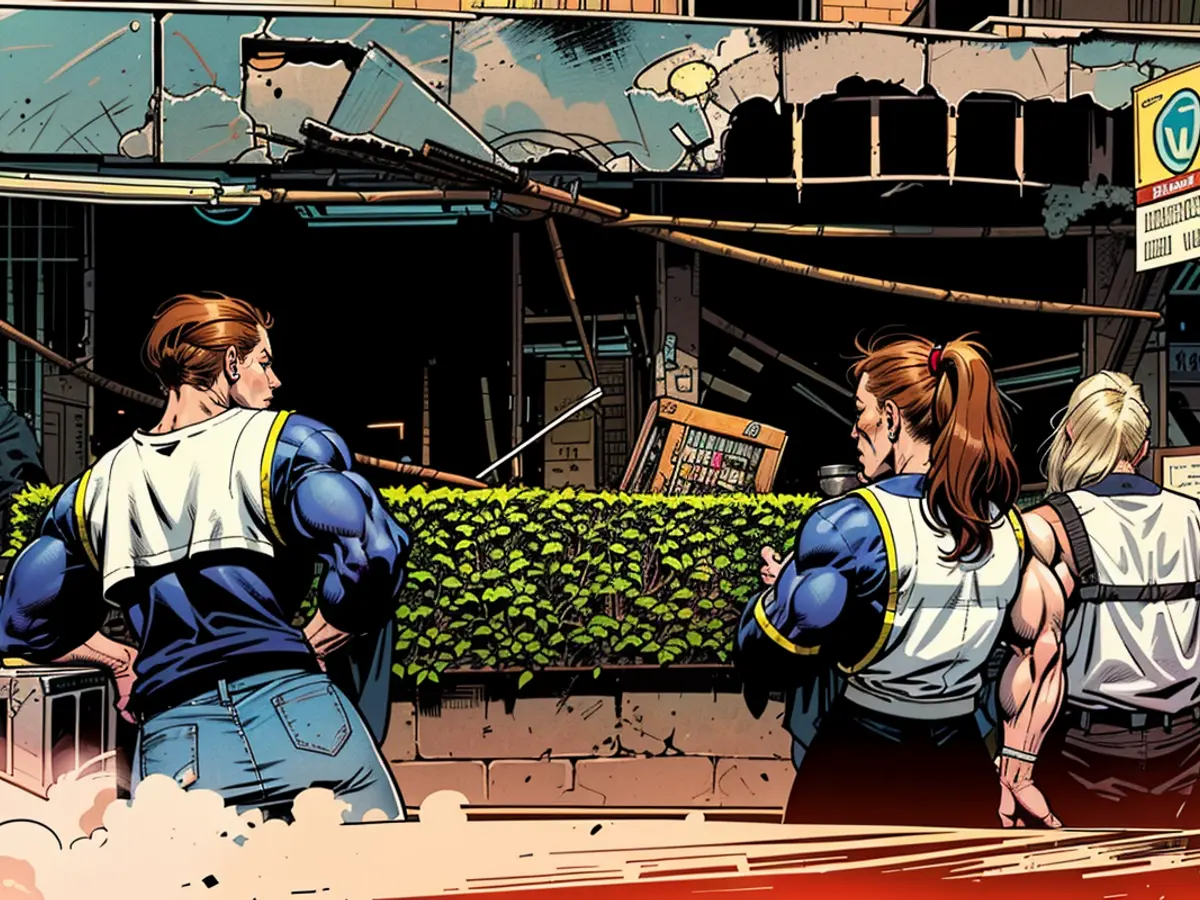Experts offer insights into the sequence of explosions in Cologne.
Over the recent weeks, there have been several incidents of explosions in Cologne and Bonn. NRW Interior Minister Reul suspects a connection to Germany's recent cannabis legalization. The authorities are concerned about an escalation of violence among criminal groups.
The list is concerning: On September 25th, an explosion occurred at the intersection of Escher Straße and Longericher Straße in Cologne-Pesch, causing a café to burn down and lightly injuring two people. On September 21st, a bomb detonated in front of a single-family house in Wachtberg-Adendorf near Bonn, causing property damage. On September 18th, windows were smashed in a clothing store on Ehrenstraße, and an incendiary device was set off. On September 16th, an explosion took place in front of Vanity Club on Hohenzollernring, shaking Cologne's city center. This list could be extended back to July.
The Cologne police are currently dealing with a new level of violence among criminal gangs. Minister Reul and Cologne's Chief of Police Michael Esser are unequivocal about the context of these incidents. Reul told the "Süddeutsche Zeitung" that the incidents are linked to the Dutch drug mafia. Esser spoke of a connection between the incidents and organized crime in the Netherlands at a press conference. The term "Mocro-Mafia" is commonly used in this context, originating from the fact that some drug dealers from the neighboring country have Moroccan origins. However, experts stress that this term does not accurately reflect the structure of organized criminal gangs.
Criminal Feud
Within a few days, 13 suspects were arrested, according to Reul, and more than 60 investigators are working on the case, according to Esser. Reul stated that in the initial cases in July, the issue was about stolen drugs, specifically "approximately 300 kg of cannabis worth 1.5 million euros, which they wanted to retrieve". With the explosions, Reul said, "other criminals are being targeted".
Oliver Huth, NRW chairman of the Federal Association of German Criminal Police, sees parallels in this method with organized crime in the Netherlands. He told WDR that this method of "blowing up in front of doors" is used several hundred times a year in the Netherlands. Such attacks serve to send a message to the criminal underworld, according to Huth. "We know your location. We can reach you at any moment." Reul also emphasized that "overall, it's about threats against people in the criminal underworld who are involved in drug deals".
This may also explain why property damage was the primary goal, with bystander injuries accepted as collateral. The investigators are not likely to receive further information from the arrested individuals. "The people involved are saying nothing at all," said Reul. "Even those living in the affected properties and suffering property damage remain silent because they have no interest in the incidents becoming known. Cooperation is different."
Reul also fears that this could mark the beginning of a dangerous new development. "Here, a new form of violent activity is emerging that we didn't know before and that we have to deal with," said Reul, who connects this to Germany's cannabis legalization.
This is also a reflection of developments in the Netherlands. Dutch criminologist Robin Hofmann estimates that the legalization of small amounts of cannabis in the country is the "origin of the Mocro-Mafia". Experts state that the currently legally produced cannabis in Germany cannot meet the demand, creating a market for illegally obtained drugs. In August, NRW BDK chairman Huth calculated that the annual demand for cannabis is about 400 tons.
Reul sees an increase in consumption and believes that drug criminals are capitalizing on this growing market. "I don't believe they'll ever say they've made enough and stop," the minister said. "They'll want to stay in business. In the Netherlands, where drug policy has taken this path, a lot is happening on the streets in terms of drug-related violence."
He hopes that the investigative efforts of local authorities will be successful and have a deterrent effect. In the case of the clothing store explosion, the police are searching for a suspect using footage from a surveillance camera at Cologne Central Station.
The increase in drug-related incidents and explosions, as seen in Cologne and Bonn, has led experts to suspect a connection to organized crime, specifically the Dutch drug mafia or Mocro-Mafia. Police are investigating the involvement of these criminal groups, given their history of using violent tactics to manipulate the criminal underworld, such as planting explosives at properties.






